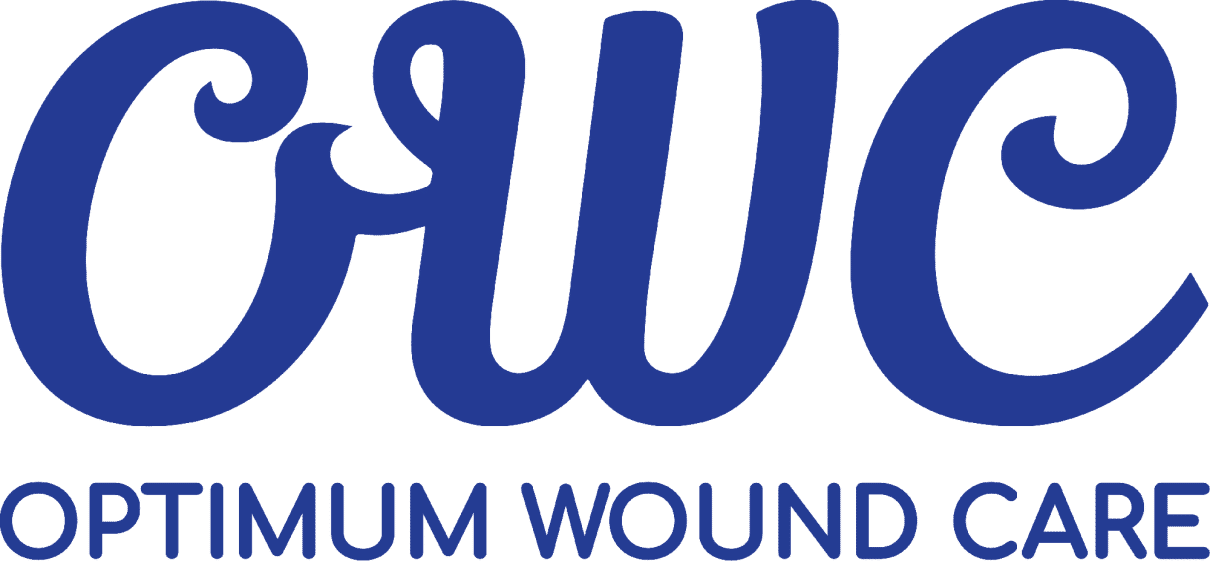How Medication Can Impact Wound Healing
Wounds, They happen when you least expect them. A slip with a kitchen knife. A stumble on the sidewalk. Suddenly, you’re dealing with pain, inconvenience, and the pressing question: “How long will this take to heal?” But what if the medications you’re taking for other health issues are secretly slowing down your recovery? It’s a thought that might not cross your mind, but it’s more common than you’d think.
Imagine this: You’re diligently caring for a wound, keeping it clean, changing dressings, and following all the right steps. Yet, days turn into weeks, and the healing seems stagnant. Frustrating, right? Sometimes, the culprit isn’t the wound itself but the medications in your daily routine.
Take, for instance, anti-inflammatory drugs like ibuprofen. They’re great for alleviating pain and reducing inflammation, but in high doses, they can actually impede the healing process by weakening the wound area and reducing necessary inflammation.
Or consider corticosteroids, commonly prescribed for conditions like asthma or arthritis. While they work wonders in suppressing overactive immune responses, they can also delay wound healing by inhibiting the inflammatory phase essential for tissue repair.
And it’s not just prescription meds. Even over-the-counter supplements can play a role. A patient once shared how her daily turmeric supplement, known for its anti-inflammatory properties, was contributing to prolonged bleeding times, unbeknownst to her. It’s a stark reminder that natural doesn’t always mean harmless.
So, what’s the takeaway here? Always keep your healthcare providers in the loop about every medication and supplement you’re taking. It’s not just about avoiding adverse drug interactions but ensuring that your path to healing isn’t unknowingly obstructed.
At OWC Center, we believe in a holistic approach to wound care. Understanding the full picture of your health allows us to tailor treatments that align with your body’s needs, ensuring optimal healing. Remember, every detail matters when it comes to your well-being.
For a deeper dive into how medications can influence wound healing, check out our related articles:
- The Physical Examination in Wound Care: Key Steps & Importance
- The Role of Negative Pressure Wound Therapy in Wound Healing
- How Technology is Changing Wound Care Treatment
Your journey to healing is a partnership. Let’s navigate it together.
Medications and Wound Healing: What You Need to Know

Navigating the world of medications can be like walking through a maze, especially when you’re trying to heal a wound. Some medications are like helpful guides, leading you toward faster recovery, while others might inadvertently set up roadblocks. Let’s explore how different medications can impact wound healing and what you can do about it.
Medications That May Slow Wound Healing
It’s a bit ironic, isn’t it? The very medications that help manage certain health conditions might be the ones slowing down your wound healing. Understanding which drugs have this effect can empower you to take proactive steps.
Corticosteroids
These are the heavy hitters when it comes to reducing inflammation. Prescribed for conditions like asthma, arthritis, and allergies, corticosteroids work by suppressing the immune system. However, this suppression can be a double-edged sword. By dampening the body’s natural inflammatory response, these drugs can delay the initial phase of wound healing, making it take longer for new tissue to form.
Nonsteroidal Anti-Inflammatory Drugs (NSAIDs)
NSAIDs, such as ibuprofen and aspirin, are household staples for managing pain and inflammation. While they’re effective for short-term relief, long-term or high-dose usage can interfere with the healing process. They may reduce the production of prostaglandins—compounds that play a crucial role in wound healing—thereby slowing down the repair of damaged tissues.
Anticoagulants
Medications like warfarin and heparin are essential for preventing blood clots, especially in individuals with certain heart conditions. However, by thinning the blood, they can increase bleeding at wound sites and impede the formation of clots necessary for the initial stages of healing.
Chemotherapy Agents
For those undergoing cancer treatment, chemotherapy drugs are vital. Yet, these agents don’t discriminate between cancerous and healthy rapidly dividing cells. This means they can hinder the proliferation of cells needed for wound repair, leading to delayed healing.
Immunosuppressants
Used to prevent organ transplant rejection or to treat autoimmune diseases, immunosuppressants reduce the body’s immune response. While this is beneficial in preventing the body from attacking itself, it also means a decreased ability to fight off infections and a slower wound healing process.
Medications That Can Promote Wound Healing
Not all medications are foes in the healing journey. Some can actually give your body’s repair mechanisms a helpful nudge.
Growth Factors
These are substances, such as platelet-derived growth factor (PDGF), that stimulate cell growth and division.
Wound healing isn’t just about dressings and ointments—it’s also about what’s happening inside your body. Medications that support other parts of your health can unexpectedly interfere with recovery, and even the most diligent wound care routine may falter if the chemistry isn’t right.
Drugs like corticosteroids, NSAIDs, chemotherapy agents, and blood thinners—while critical for managing chronic conditions—can delay wound repair by suppressing immune function, reducing necessary inflammation, or interfering with blood clotting. Even something as seemingly harmless as an over-the-counter supplement like turmeric can subtly prolong bleeding time. These effects aren’t always obvious, but they can add up quickly, especially for patients with complex health profiles.
On the flip side, some medications can accelerate healing. Topical growth factors, vasodilators, and specific nutrient therapies like zinc and vitamin C have been shown to actively promote tissue regeneration, reduce inflammation, and enhance circulation. When prescribed appropriately, they can be game-changers in advanced wound care—especially when healing has stalled.
For individuals managing diabetes, the medication picture becomes even more critical. Fluctuating blood glucose, neuropathy, and the wrong combination of medications can easily stall healing or hide signs of infection. That’s why a detailed medication review is one of the most important steps in managing diabetic wounds effectively.
What makes a real difference? Communication. Sharing your full medication list—including supplements, OTC pain relievers, or herbal remedies—allows your wound care provider to tailor your treatment for optimal healing. At OWC Center, every wound care plan is built around the whole person, not just the wound. Because healing isn’t just a physical process—it’s a partnership.
Key Takeaways
- Medications can affect your body’s ability to heal—even if they’re not directly related to your wound.
Many commonly prescribed drugs, such as corticosteroids, NSAIDs, and anticoagulants, can slow down wound healing by interfering with inflammation, blood clotting, or immune responses. At the OWC Center’s Advanced Wound Care clinic, we evaluate your full medication profile to create a healing plan that works with—not against—your prescriptions. - Supplements and over-the-counter medications matter, too.
Even natural or seemingly harmless remedies like turmeric or aspirin can subtly interfere with your recovery. That’s why our team always asks for a complete list of everything you’re taking—so we can build a safer, smarter approach. Learn more about our Outpatient Wound Services that factor in every detail of your care. - Certain medications can help wounds heal faster when used correctly.
Topical growth factor gels, vasodilators, and nutrition-based therapies like zinc and vitamin C can speed healing and reduce inflammation. Our clinicians are trained to incorporate evidence-based medications that actively promote tissue regeneration. Explore how we customize care through our Chronic Wound Management services. - Diabetic wound healing is especially sensitive to medication effects.
For people managing diabetes, the wrong combination—or even poor glucose control—can quietly stall healing. Our Diabetic Ulcer Treatment program includes personalized medication reviews to avoid complications and support healing from every angle. - The key to effective wound care? Honest, open communication about your medications.
Every supplement, prescription, or recent dosage change matters. At OWC Center, we believe healing is a team effort—so bring your full medication list and your questions. We’ll walk with you every step of the way. Discover our compassionate, whole-person approach through our Wound Care Specialists.
5 Common Questions About Medication and Wound Healing (Answered)
1. Can certain medications slow down my wound healing process?
Yes—and it might surprise you which ones.
Many people take medications for conditions like high blood pressure, diabetes, inflammation, or even allergies. While these meds serve a vital role, some can delay wound healing by interfering with blood flow, immune responses, or cell regeneration.
Here’s a quick breakdown:
- Corticosteroids: Often prescribed for inflammation (like prednisone), they can suppress the immune system and delay wound closure.
- NSAIDs: Drugs like ibuprofen may reduce necessary inflammation, which is crucial for the early stages of healing.
- Chemotherapy agents: These can impair cell division, slowing tissue regrowth.
- Anticoagulants (blood thinners): Meds like warfarin or aspirin can increase bleeding risk and slow clot formation.
- Antibiotic overuse: Can disrupt your natural skin flora and lead to resistance or yeast infections that complicate wounds.
💡 Pro Tip: Always share your full medication list with your wound care specialist—including over-the-counter supplements. Our team at OWC Center customizes treatment plans with your full health picture in mind.
2. What should I do if I think my medication is affecting my wound?
First—don’t panic. Second—don’t stop taking your meds without talking to your provider.
We understand it can be worrying when a wound isn’t healing like it should. At OWC Center, we’ve helped many patients uncover how their medications were playing a role, and made adjustments in collaboration with their doctors.
Here’s what you can do:
- Document your symptoms: Any redness, delayed healing, or unusual side effects? Write it down.
- Communicate openly with both your primary care doctor and your wound care team.
- Ask about alternatives: Sometimes, another drug can be used with fewer wound-related side effects.
- Schedule a wound assessment with us: Our clinicians offer advanced wound management strategies tailored to complex cases.
💙 Your body’s healing is a team effort. Let us help you read the signs and respond wisely.
3. Are there medications that actually help wounds heal faster?
Absolutely—and it’s not just about antibiotics.
While topical or oral antibiotics are commonly prescribed to fight infection, there are also medications that promote tissue growth, reduce inflammation, or enhance blood flow to the wound area.
Here are a few helpful categories:
- Growth factor gels: These promote cell regeneration directly at the wound site.
- Vasodilators: Improve blood flow to tissues (sometimes used in vascular ulcers).
- Zinc, Vitamin C, and other supplements: Prescribed as part of a nutrition-supportive wound healing plan.
- Pain medications: When managed carefully, they can reduce stress hormones that inhibit healing.
🌿 A patient at OWC Center recently shared how a simple switch in her blood pressure meds and adding a prescription wound gel led to healing after months of stagnation. Sometimes, it’s just the right combination.
4. How does medication impact wound healing in people with diabetes?
This is one of our most common questions—and for good reason.
People with diabetes often take multiple medications, and their wounds can be particularly slow to heal due to poor circulation and nerve damage. But what many don’t realize is that some diabetic medications can complicate wound healing, while others may support it.
Potential challenges:
- Insulin mismanagement: Too little insulin can raise blood glucose levels, which inhibits healing.
- Metformin: Some research suggests it might delay wound closure, though it’s still debated.
- Neuropathy medications: Can mask symptoms of worsening wounds.
💡 Wound management for diabetic patients requires close medication review. At OWC Center, we specialize in diabetic ulcer treatment, combining medication planning with compression therapy, offloading, and personalized dressing protocols.
5. What should I tell my wound care provider about my medication?
Everything. Really.
Even if you think a supplement or occasional painkiller “doesn’t count,” it might influence your healing. Here’s what to bring to your next appointment:
- A complete medication list (prescriptions, OTC meds, supplements, herbal remedies)
- How long you’ve been taking each one
- Recent changes in dosage
- Side effects you’ve noticed
- Any medications you’ve stopped recently
📝 One patient came to us with a wound that wouldn’t close, and it turned out her daily turmeric supplement (which can thin the blood) was part of the problem.
Your care plan depends on the full picture, and our specialists are trained to adjust treatment plans based on your entire health profile.
Explore our advanced wound care services to see how we can support you on your healing journey.




